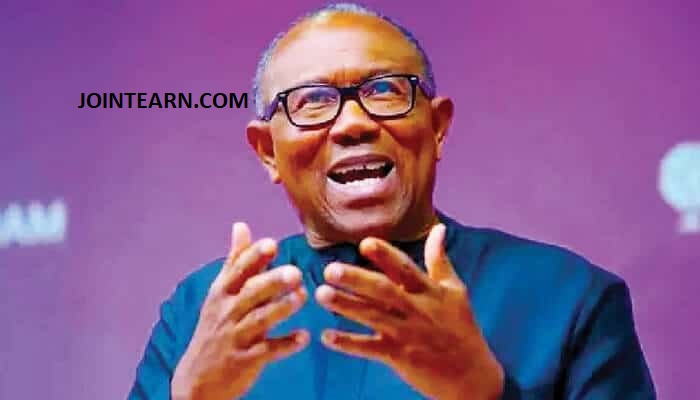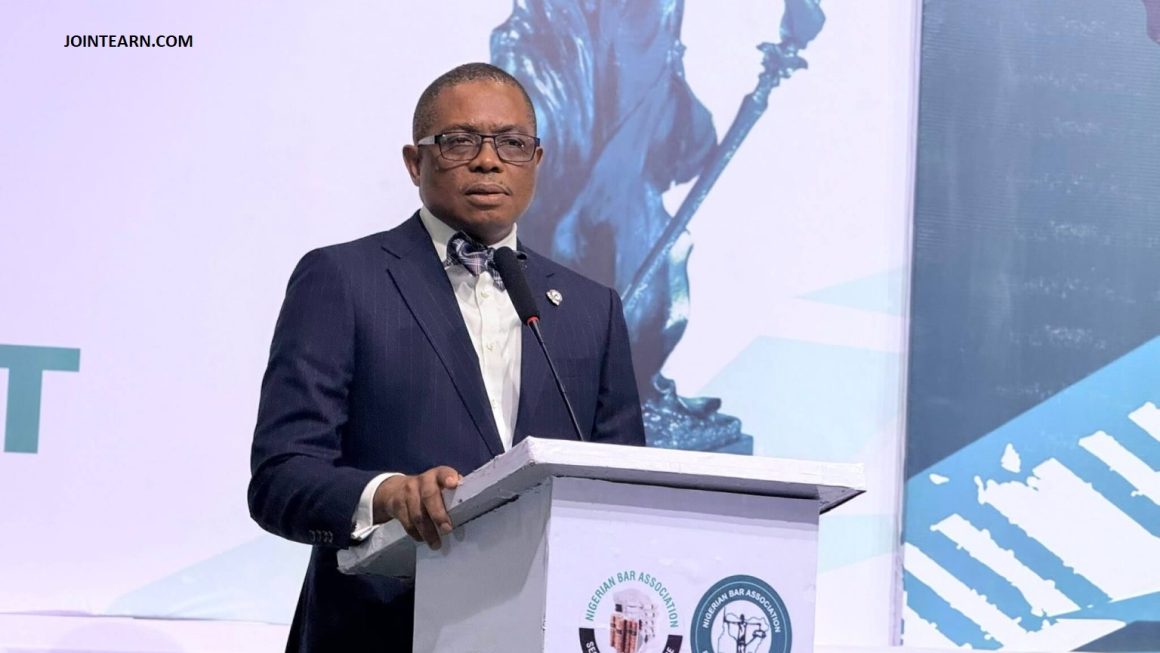Former Anambra State governor and Labour Party presidential candidate in the 2023 elections, Peter Obi, has once again drawn national attention to the worsening state of Nigeria’s unemployment and underemployment crisis. In a recent public address, Obi expressed deep concern over the deteriorating labor market conditions in the country, which he says are undermining the economic well-being of millions of Nigerians, especially the youth.
Speaking at a public policy forum in Abuja, Obi criticized what he described as the Nigerian government’s “complacency and poor prioritization” in tackling the twin issues of joblessness and economic disempowerment. He stated that while the country boasts a young and vibrant population, successive governments have failed to harness this demographic advantage to build a strong, inclusive economy.
Nigeria’s Employment Crisis
According to Obi, Nigeria is grappling with an employment emergency that is not being addressed with the urgency it demands. He lamented that the current unemployment rate, coupled with a rising level of underemployment, paints a bleak picture of the country’s economic trajectory.
“The situation is alarming. Nigeria has one of the highest unemployment rates in the world. Millions of graduates are roaming the streets with no jobs in sight. Even those who are employed are not earning enough to sustain a decent standard of living. This is a national emergency,” Obi said.
Obi noted that youth unemployment, in particular, is one of the most dangerous threats to Nigeria’s stability and future. “When the energy of young people is not directed productively, it creates room for social unrest, insecurity, drug abuse, and mass migration,” he warned.
Underemployment: A Silent Threat
While unemployment is often at the center of public discourse, Obi highlighted underemployment as an equally dangerous but less visible challenge. He explained that many Nigerians who are classified as employed are merely surviving on part-time or low-paying informal jobs that offer no security, benefits, or growth prospects.
“A young graduate selling phone accessories on the roadside or driving a commercial tricycle to survive is not employed in the true sense. These are survival activities, not real employment. Nigeria’s economy is not creating decent jobs,” he said.
He called for a redefinition of employment in Nigeria to reflect the quality and dignity of work, not just the absence of idleness. Obi also pointed out that many government policies continue to ignore the structural roots of underemployment, such as low industrial productivity, lack of access to capital, and poor infrastructure.
Poor Economic Planning to Blame
Peter Obi attributed much of Nigeria’s labor market woes to poor economic planning, wasteful public spending, and a failure to prioritize human capital development. He emphasized that economic growth must be inclusive and people-centered to have any meaningful impact.
“Our government keeps talking about GDP growth, but what does it mean when millions remain jobless? Economic growth that does not translate into jobs and improved living conditions for the people is meaningless,” Obi asserted.
He stressed the need for a paradigm shift in Nigeria’s economic planning approach, one that focuses on education, vocational training, innovation, and small business support. According to him, empowering micro, small, and medium enterprises (MSMEs) is the most effective way to create jobs in the short to medium term.
A Call for Policy Reform
Obi called on the federal and state governments to take urgent and deliberate action to address the employment crisis. Among the key reforms he proposed were:
-
Investment in Education and Skills Development: Obi urged a revamp of the nation’s educational curriculum to make it more skill-based and aligned with modern economic demands. He stressed that Nigeria must focus on producing job creators, not just job seekers.
-
Promotion of Local Industries: He called for the development of local manufacturing industries that would reduce import dependency and create thousands of jobs. “Nigeria imports what it can produce. That is unacceptable,” he said.
-
Public-Private Partnership in Job Creation: Obi advocated for closer collaboration between government and the private sector in designing and implementing employment programs that target young Nigerians.
-
Agricultural Modernization: Highlighting the potential of agriculture to absorb large numbers of unemployed youth, Obi emphasized the need for mechanized and modernized farming practices backed by investment in rural infrastructure.
Political Will and Leadership
Peter Obi maintained that solving Nigeria’s unemployment problem is not about lack of ideas, but about political will and sincerity. He criticized the current administration’s lack of commitment to implementing bold reforms and holding institutions accountable for job creation mandates.
“Until we have leaders who are genuinely committed to building the economy from the bottom up, we will continue to recycle poverty, inequality, and insecurity,” Obi stated.
He called on Nigerians to demand accountability from elected officials and urged youths to become more politically active, stressing that decisions made by leaders directly affect employment opportunities and economic outcomes.
Hope for the Future
Despite the grim statistics, Peter Obi expressed optimism that Nigeria can overcome its employment challenges if the right leadership and policies are in place. He cited the success stories of emerging economies like Vietnam and Indonesia, which have used a strong industrial and export base to create millions of jobs.
“Nigeria is not a poor country; we are poorly managed. We have the talent, the resources, and the energy to turn things around. But we must be ready to make hard choices and place national interest above personal gain,” he said.
As the country continues to confront economic hardship, Obi’s message serves as a sobering reminder that the path to national prosperity must begin with people-centered policies that prioritize jobs, dignity, and opportunity for all Nigerians.












